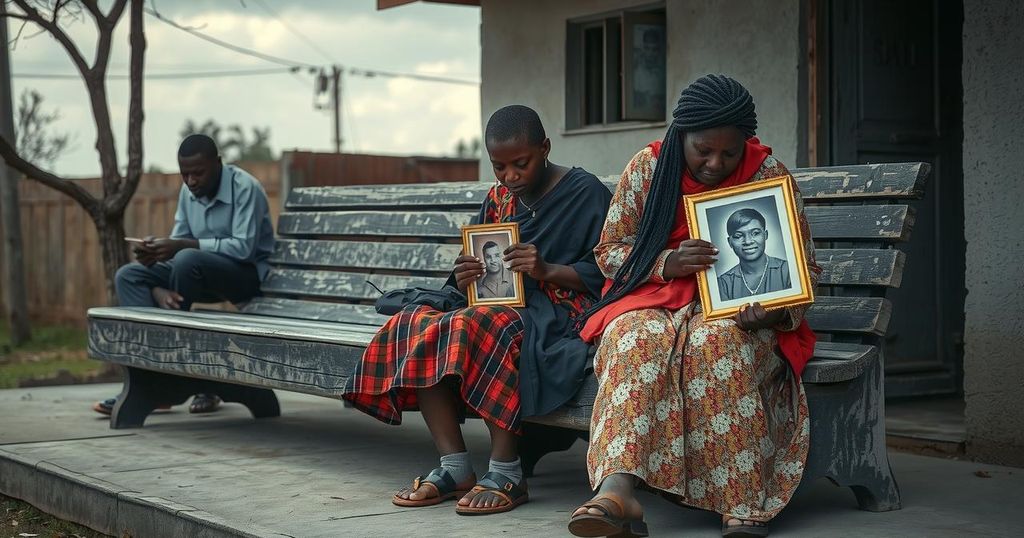Kenya’s Femicide Crisis: A Call for Justice as Women Continue to Suffer

In Kenya, a woman is murdered every two days, with 160 reported femicides in 2024. Families face significant hurdles in achieving justice due to inadequate legal support and resources. Grassroots organizations provide urgent help, but systemic reforms are needed to protect women effectively. Kenyans continue to demand justice amid an ongoing crisis, marked by sorrow and advocacy for change.
In Nairobi, Kenya, countless families endure the agonizing reality of losing loved ones, with a woman reportedly murdered every two days. These tragedies often occur at the hands of intimate acquaintances or strangers, leaving families mourning and seeking justice, which remains elusive. According to Femicide Count Kenya, there were 160 women murdered in 2024, with 39 cases occurring in January alone. However, human rights advocates suggest the actual numbers may be significantly higher, as many murders go unreported or misclassified.
Irene Wanja recounts the painful loss of her daughter, Jane, who was killed and discarded in a river. Jane, brimming with life and ambition to become a nurse, is now remembered only through a fading photograph. Wanja laments the lack of arrests and wonders how many more mothers will experience similar grief before change occurs. “She was murdered in cold blood. I have never been able to recover,” she states poignantly.
Despite existing protective laws in Kenya, such as the Sexual Offenses Act and the Protection Against Domestic Violence Act, the enforcement of these laws is severely lacking. Underfunded resources, insufficient forensic capabilities, and corruption are significant barriers to justice. Beatrice Njeri, a lawyer, highlights the issue, stating that suspects often remain free due to claims of inadequate evidence and slow police responses. Victims’ families often struggle to secure legal representation, as many cannot afford lawyers.
As the legal system offers little support, many women turn to grassroots organizations for assistance. Wangu Kanja, a survivor of violence, has established a foundation that provides shelter and counseling to survivors. Her refuge discreetly accommodates women in dire situations, fostering a supportive environment through volunteers who offer food, medical aid, and emotional care. Kanja expresses her frustration, noting, “We receive distress calls every day, but we don’t have enough resources to help everyone.”
Kenya faces the highest regional femicide rate, with 160 deaths in 2024, compared to Uganda’s 127 and Tanzania’s 102 the previous year. Nevertheless, human rights groups emphasize that lower reported numbers in neighboring countries do not guarantee safety, as many cases remain unreported due to cultural pressures or community-level conflict resolutions. The realities are grim, particularly in areas with limited access to resources for survivors.
For many individuals affected by femicide in Kenya, justice is defined differently: for Wanja, it is about seeing her daughter’s murderer prosecuted; for Njeri, it calls for comprehensive legal reforms; and for Kanja, it signifies a safe environment devoid of fear. Unfortunately, for countless Kenyan women, the aspiration for justice is still merely a distant hope.
In conclusion, the ongoing femicide crisis in Kenya reflects a tragic reality for women facing violence and a deeply flawed justice system. Despite the existence of protective legal frameworks, the enforcement remains inadequate, leaving many victims and their families without recourse. Grassroots organizations are stepping in to provide essential support, yet their resources are limited. Addressing these societal issues requires systemic reform and increased government support to ensure safety and justice for all women in Kenya.
Original Source: www.inkl.com








